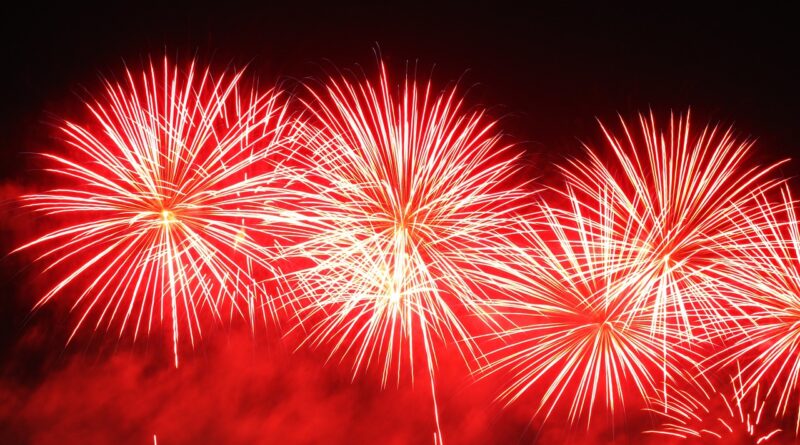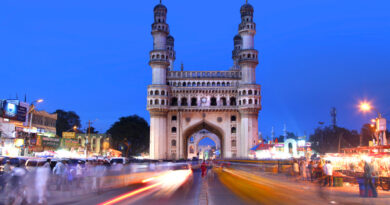Diwali History, Celebrations, and Significance of the Festival of Lights in India
Diwali, also known as the Festival of Lights, is one of India’s most celebrated and cherished festivals. Spanning five days, Diwali is a time of joy, family gatherings, and spiritual significance. People across India celebrate Diwali by lighting oil lamps, bursting firecrackers, sharing sweets, and decorating their homes to invite prosperity and happiness. Beyond its joyful celebrations, Diwali holds deep cultural, historical, and religious importance, symbolizing the victory of light over darkness and good over evil.
History of Diwali
The history of Diwali is rooted in Hindu mythology and various historical events. Its origin can be traced back to ancient India, where it was celebrated as a harvest festival. Over time, different legends and traditions have enriched Diwali’s significance, making it a multifaceted celebration. Here are some of the primary stories associated with the festival:
1. Return of Lord Rama to Ayodhya
- One of the most popular stories behind Diwali comes from the epic Ramayana. After a 14-year exile and a fierce battle with the demon king Ravana, Lord Rama, along with his wife Sita and brother Lakshmana, returned to his kingdom, Ayodhya. The people of Ayodhya welcomed them by lighting clay lamps (diyas) and decorating the city, symbolizing the triumph of good over evil. This story serves as the foundation of Diwali celebrations in Northern India.
2. Victory of Lord Krishna over Narakasura
- In South India, Diwali commemorates Lord Krishna’s victory over the demon Narakasura, who had terrorized the heavens and the earth. After defeating Narakasura, Krishna liberated the people from his tyranny, marking the festival as a celebration of freedom from evil. This event is specifically celebrated as Naraka Chaturdashi, a day before the main Diwali festival.
3. Worship of Goddess Lakshmi
- Diwali is also associated with Goddess Lakshmi, the deity of wealth and prosperity. According to legend, on the night of Diwali, Goddess Lakshmi emerged from the cosmic ocean during the churning of the ocean (Samudra Manthan), bringing wealth and fortune to the world. For this reason, devotees worship Lakshmi on Diwali, praying for blessings, prosperity, and success in the coming year.
4. Coronation of King Vikramaditya
- Another historical connection to Diwali involves the legendary King Vikramaditya, whose coronation is said to have taken place on this day. His reign is remembered as a golden age of prosperity and peace, and lighting lamps on Diwali is seen as a way to honor his legacy.
5. Sikh, Jain, and Buddhist Significance
- Diwali also holds significance in other religions. For Sikhs, it marks the release of Guru Hargobind Ji from imprisonment, known as Bandi Chhor Divas. Jains celebrate Diwali as the day Lord Mahavira attained moksha (liberation), and Buddhists of the Newar community in Nepal observe it as a day of reverence and celebration.
How Diwali is Celebrated
The celebration of Diwali spans five days, each day having its own rituals and significance. Let’s look at each day and its customs:
1. Day 1: Dhanteras
- Diwali begins with Dhanteras, a day dedicated to wealth and prosperity. People buy precious metals, gold, or utensils on this day as a sign of welcoming wealth into their homes. It is also common to clean and decorate homes in preparation for the festivities. Dhanteras is especially important for merchants, who begin new account books and offer prayers to Lord Kubera, the god of wealth.
2. Day 2: Naraka Chaturdashi (Choti Diwali)
- Also known as Choti Diwali, this day is celebrated in remembrance of Lord Krishna’s victory over Narakasura. People typically light small lamps or candles outside their homes and burst firecrackers in the evening. Many perform rituals and prayers to seek protection from evil and to remove negativity from their lives. Homes are decorated with colorful rangoli patterns to welcome prosperity.
3. Day 3: Lakshmi Puja (Main Diwali)
- The third day is the main event, marked by Lakshmi Puja, where families perform rituals to honor Goddess Lakshmi and invite her blessings for wealth and prosperity. Homes are beautifully decorated with diyas, candles, and fairy lights, while prayers are conducted in the evening. After the puja, families gather to celebrate by exchanging sweets, lighting firecrackers, and sharing joyful moments. Many also decorate their homes with marigold flowers and place lit diyas around the house to ward off darkness.
4. Day 4: Govardhan Puja or Annakut
- In many parts of India, the fourth day is dedicated to Govardhan Puja, a ritual that commemorates Lord Krishna lifting the Govardhan Hill to protect the people of Vrindavan from torrential rains. In other regions, this day is also celebrated as Annakut, where various food items are prepared and offered to the gods. This day highlights the bond between nature and human beings, celebrating the abundance of food and gratitude.
5. Day 5: Bhai Dooj
- The final day of Diwali, Bhai Dooj, celebrates the bond between brothers and sisters. Sisters pray for their brothers’ well-being and prosperity, while brothers promise to protect their sisters. Families come together for a festive meal, exchanging gifts and spending time in each other’s company.
Importance and Significance of Diwali
Diwali holds significant meaning in Indian culture, and its celebration goes beyond mere festivity. Here are the primary aspects of its importance:
1. Symbolism of Good Over Evil
- Diwali represents the eternal triumph of good over evil, knowledge over ignorance, and light over darkness. The stories of Lord Rama, Lord Krishna, and Goddess Lakshmi all emphasize that virtuous actions lead to happiness and prosperity. By lighting lamps and bursting firecrackers, people honor this victory and spread positive energy.
2. Fostering Family Bonds
- Diwali is a time for family gatherings and reunions, where people come together to celebrate and strengthen their bonds. The festival is a chance for family members, relatives, and friends to gather, exchange gifts, and share festive meals, fostering warmth and unity among loved ones.
3. Spiritual Cleansing and Renewal
- Diwali coincides with the end of the Hindu lunar year, symbolizing a fresh start. People clean and renovate their homes, aiming to remove any negativity. Lighting lamps and performing puja rituals cleanse the mind and soul, symbolizing a fresh spiritual beginning.
4. Economic Significance
- Diwali is a time of bustling markets and increased economic activity, as people buy new clothes, jewelry, electronics, and household items. Businesses thrive during this period, and Diwali sales boost the economy, providing employment and encouraging trade. This festival season also marks a significant time for cultural artisans, who create traditional goods like diyas, rangoli powder, and handicrafts.
5. Promoting Generosity and Charity
- Diwali encourages charity and compassion. Many people donate food, clothes, and money to those in need during this time. This tradition of giving back is a way to spread joy and bring light to the lives of the underprivileged.
6. Environmental Awareness
- In recent years, there has been a shift towards celebrating an eco-friendly Diwali. Due to concerns about air pollution, people are opting for green firecrackers, or limiting the use of fireworks altogether. Awareness around sustainable celebrations is growing, encouraging people to light more diyas and adopt eco-friendly decorations.
Modern Ways to Celebrate Diwali
With changing times, Diwali celebrations have taken on a modern flavor. Here are some contemporary ways people are embracing the festival:
- Eco-Friendly Decorations: People are now using sustainable and biodegradable decorations, such as natural colors for rangoli, bamboo decor, and clay diyas.
- Digital Greetings: With the rise of social media, people now connect with loved ones through digital messages and virtual celebrations, sending greetings via video calls and e-cards.
- Community Service: Many choose to volunteer or engage in charity activities, sharing Diwali’s spirit of giving with underprivileged communities.
- DIY Crafts and Rangoli: Families enjoy making their own decorations, creating unique DIY crafts, and designing colorful rangoli patterns as a bonding activity.
- Eco-Conscious Fireworks: As part of a growing trend towards sustainability, people now prefer minimal or eco-friendly firecrackers to reduce the environmental impact.
Conclusion
Diwali, the Festival of Lights, is a celebration that embodies India’s diverse cultural heritage and emphasizes universal values like unity, kindness, and hope. With its deep historical roots and rich mythology, Diwali continues to be cherished by people worldwide. As we light diyas, enjoy sweets, and celebrate with family, we are reminded of the importance of positivity, gratitude, and resilience. By embracing both traditional and eco-conscious practices, Diwali remains a beacon of joy, hope, and renewal, bringing people closer to each other and




